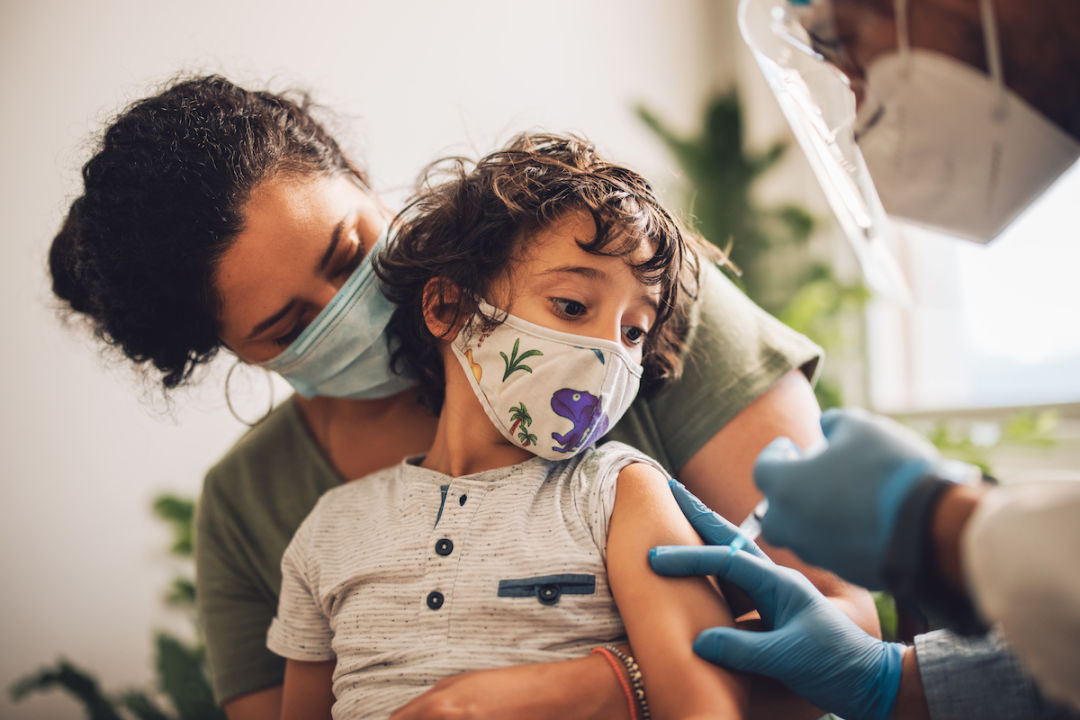Expert Advice about COVID-19 Vaccines and Safety for Kids

After a long and anxious wait, COVID-19 vaccines are now available for kids age 5 to 11. Getting young kids vaccinated is critical for protecting our communities, since this is a large age group, and taking this step will give millions of parents peace of mind.
Paul Lewis, MD, a Kaiser Permanente pediatrician in Portland, Oregon, who specializes in infections in kids, says that as winter and the holidays approach, this is a good time to get kids vaccinated. He suggests using the COVID-19 vaccine authorization as an opportunity to get kids caught up on other vaccinations as well, since many people have fallen behind on regular appointments during the last 18 months. He also suggests that all children over 6 months old get their flu shot this year. Fortunately, he says, it’s no problem to get both shots at the same time.
We know parents, caregivers, and others may have questions about the safety of the pediatric COVID-19 vaccine. In this Q&A, Dr. Lewis answers common questions about it.
How well does the COVID-19 vaccine work for kids?
For kids under 12, the COVID-19 vaccine is incredibly effective. A recent study, affirmed by the Food and Drug Administration, that included more than 3,000 kids who got the pediatric dose of the vaccine found that it was more than 90% effective at preventing infection with symptoms.
How does the vaccine for children 5 to 11 differ from the vaccine for people 12 and older?
The pediatric vaccine is identical to the vaccine that’s used for older teenagers and adults, but the dose is one-third of the adult dose. That dosage was chosen because it was just as effective at providing protective antibodies but had a much lower rate of side effects.
What are the most common side effects?
Of the thousands of kids who were part of that recent study, zero had serious adverse events. Some kids get sore arms, redness, or swelling, and a smaller percentage might get fatigue, muscle aches, or fever. But they’re getting side effects at lower rates than teenagers and adults.
What is the risk of myocarditis?
Myocarditis, or inflammation of the heart, has occurred in young men who’ve been vaccinated but is pretty rare, with a handful of cases per million vaccination doses. Many cardiologists think that, since this is generally more common in teenagers than school-age kids, it’ll be less common after vaccination as well.
If my child has underlying health conditions, should I go ahead with vaccination?
Studies on this are ongoing. We know that older adolescents and adults with immunocompromised conditions or on immunosuppressive medications respond less well to vaccination, but they do respond. We also know that if they get COVID-19, they’re more likely to have worse outcomes, including needing hospitalization and intensive care. If someone has an underlying condition, such as an immunosuppressive condition, diabetes, heart disease, or lung disease, we recommend getting an age-appropriate vaccine.
If my child is used to wearing a mask, can't I just rely on that for prevention?
Social distancing and wearing masks are important layers of protection, but they are hard to continue day after day, especially for kids at recess or at lunch. So the vaccine is a big, thick layer of protection to help with all those other measures, and people should use them together.
How should I prepare my child for a vaccination appointment?
I’ve never met a kid who wanted to get a shot, but kids are resilient. You can help by explaining that you’ve been vaccinated and, while it does hurt, the pain goes away quickly and you’re there for them. At Kaiser Permanente vaccination sites, there will be people who are used to dealing with children and who know that there is a lot of emotion and fear. Kaiser Permanente staff and parents can work together to make it a minor experience for kids.
To schedule a vaccination and learn more, visit kp.org/covidvaccine/nw.
